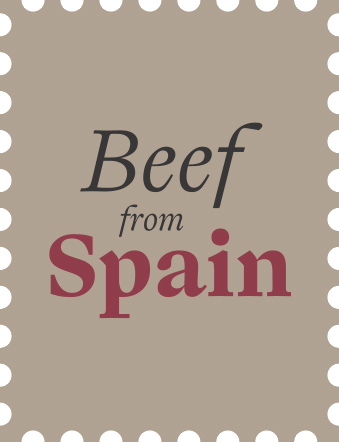
Code of good practice beef cattle
PROVACUNO has been working since mid-2019 on a strategy to reduce greenhouse gas emissions and increase carbon sequestration. This is achieved through improved management practices and optimized use of pasture and forage resources on its farms. The strategy is called the 2050 Carbon Neutral Strategy, and its objective is to achieve climate neutrality in the Spanish beef sector by 2050. This will be accomplished by sequestering carbon equivalent to the greenhouse gases generated in the production processes of the sector.
The beef value chain is committed to taking a proactive role in reducing emissions and improving its environmental sustainability. This includes promoting research and technological development, with the goal of applying results to the daily activities of producers. The initial activities of this strategy include the implementation of a Code of Good Practice. Its application will be promoted throughout the livestock sector and later extended to the rest of the value chain. Additionally, a socioeconomic and productive analysis of the sector will be conducted to establish a foundation for applied research projects that support the strategy's objective.
The Code of Good Practice has been drafted in collaboration with Spanish researchers from the Remedia network and experts from the beef sector, all of whom are recognized as authors of the work.

Code of good practice for the beef processing industry
The Spanish beef sector, through PROVACUNO, has long pursued its “2050 Carbon Neutral Strategy”, a strategy which unites all stakeholders in the value chain in a commitment to progressively reduce GHG emissions in the coming years. This reduction goes hand in hand with improvements in the efficiency and effectiveness of all processes, from production to processing.
PROVACUNO expresses its commitment and alignment with international objectives to reduce Greenhouse Gas (GHG) emissions. It emphasizes the involvement of the entire beef value chain in this endeavor, taking a proactive role in reducing emissions and promoting environmental sustainability. This includes supporting research and technological development, with the goal of applying the results to both the livestock sector and the meat processing industry.
Following its planned sustainability strategy, and after developing a code of good practices for the production sector, PROVACUNO aims to continue its work by creating a document for the processing industry. This document will guide operators in improving key environmental indicators at each stage of the process.

The main objective of this project has been the establishment of the optimal hydrolysis parameters of bovine blood in order to obtain hydrolysates that allow its application and possible commercialization due to its nutritional, physiological improvement or palatability improvement characteristics.
The main results demonstrated the great potential of this raw material as a source of high added value compounds such as bioactive peptides, flavoring peptides, essential amino acids, or minerals such as iron.
Blood has been subjected to a hydrolysis process with commercial proteolytic enzymes suitable for consumption, resulting in the generation of a large amount of peptides of molecular size less than 10 kDa, which have proven to be very interesting from the point of view of their bioactivity and palatability. An important biological activity tested in vitro has been observed. In addition, a large amount of amino acids are released during the process, which gives the hydrolysate a great added value from a nutritional point of view. In this study it has been demonstrated that in the fraction with a molecular size smaller than 10 kDa, together with these bioactive peptides, other peptides with high flavoring capacity appear, while in the fraction with a molecular size larger than 10 kDa, other minority protein fragments and oligopeptides that have not been completely degraded are concentrated.
This study has made it possible to establish the optimum working conditions with commercial enzymes to obtain the maximum yield according to the final use for which they are intended and is very interesting as a starting point for a better understanding of the potential of bovine blood hydrolysates as an ingredient in new products.
For more information on this project, please contact the e-mail address: info_arroba_provacuno.es

